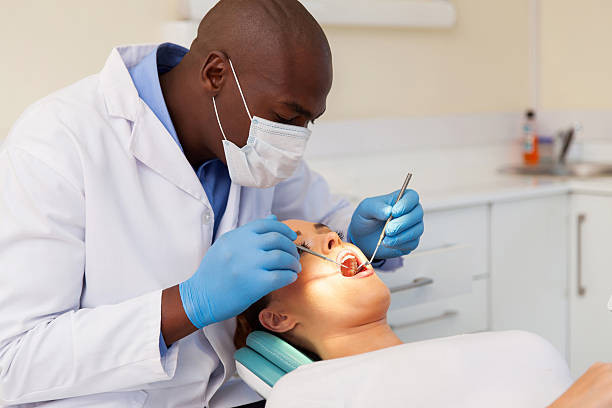
DENTAL hygiene is one of the least prioritised aspects in health yet one of the most important elements. Consequently, it is poorly understood across the African continent; as such Zimbabwe bears its share.
This issue is considered unimportant until someone develops severe toothache. Personal oral hygiene is inadequately understood, including the basics such as choosing good toothpaste.
Did you know that toothpaste falls under the cosmetic industry and unfortunately cosmetics are not well-regulated, which means that there might be so many harmful ingredients that can be added, thus for a person who does not know which ingredient is consumable and safe to ingest it could lead to long term health conditions.
Since education is key to success in all aspects of life, would you not then take a step further to taking oral hygiene seriously by paying attention to the little details as to choosing the proper toothpaste for you and your family, hence better health and wellbeing? People frequently ask questions like, "What kind of toothpaste should I choose?" and "which toothpaste is good for me?", “I see a lot of different types, but how can I tell which one is best for me?”
It is true that the abundance of different types of toothpaste or oral hygiene products could cause confusion, and I am sure you have also wondered about the “how?” part.
Due to limited oral health literacy, we still face many challenges, particularly in determining the best course of action for maintaining good oral hygiene.
Historically as Africans, we used sticks and pure charcoal for tooth brushing as well as using cloth to remove plaque from our teeth and then rinse with water. Have you ever wondered why toothpaste is such a big deal? One important factor is that whatever you put into your mouth can directly be absorbed into your bloodstream and potentially pose health problems and toothpaste is one of them.
There are two main factors you should definitely take into account when purchasing your toothpaste and everything else is up to your preferences. The main factors or questions that you should ask yourself before choosing any kind of toothpaste are as follows:
- Zim one of biggest labour exporters to UK
- Zim one of biggest labour exporters to UK
- Health sector should get largest chunk of 2023 budget
- Health Services Bill sails through Parly
Keep Reading
- Does your toothpaste contain fluoride?
- Is your toothpaste approved by any legal dental organisation in your country? For example the Americans use the ADA seal of acceptance which usually gives an indication that the toothpaste is safe for use.
- Preferences Should you buy a fluoride?
Fluoride is known as a non-essential element of the body, yet it is important for healthy bones and teeth. By guarding against harmful bacterial enzymes, shielding the enamel from acid damage, and preventing mineral loss from tooth surfaces, it helps prevent dental decay when it comes in contact with tooth surfaces.
Despite all these advantages, fluoride has been found to cause dental fluorosis in children, which can be identified as dark brown spots on teeth that are not aesthetically pleasing or sometimes white streaks on the enamel. Fluoride has also been found to be involved in fluoride toxicity, particularly in children which leads to vomiting, especially after ingestion of fluoride toothpaste.
Children are recommended to use their own specialised toothpaste for these reasons, or if one cannot afford to buy non-fluoride toothpaste for the minor (child), they could use the fluoride one but in smaller amounts usually a pea sized amount of toothpaste.
Another disadvantage of fluoride in toothpaste discovered over the years was that most fluoride containing toothpastes were associated with some toxic chemicals like (Carrageenan, sodium lauryl/laurate sulfate, sodium coco sulfate, sorbitol, sodium saccharin, titanium dioxide, glycerin, hydrated silica, PEG-8, PEG/PPG, artificial colouring (such as blue 1, yellow 10) and endocrine disruptors (such as lavender).
That is why there is a recent shift from fluoride toothpaste, there are so many fluoride-free alternative toothpastes that provide almost the same effectiveness as fluoride in preventing tooth decay although
I would still recommend people to visit the dentist once or twice a year for remineralisation therapy if cost is not much of a constraint.
Is your toothpaste in your country?
Toothpastes with the dental seal are typically more effective in preventing gum disease, tooth decay, and other dental conditions. The seal is a more reliable way to know that the toothpaste has passed stringent testing and satisfies safety and efficacy standards.
Moreover, it serves to ensure that the toothpastes continue to satisfy requirements.
For gum disease you may want to consider ingredients like orange peel extracts, coenzyme Q10, aloe vera, Vitamin E, Pro-Vitamin B5 (panthenol), chlorhexidine, CPC 9cetylpyridinium chloride).
For teeth whitening, it is crucial to understand that these types of toothpastes have adverse effects like causing increased sensitivity and gum irritation. For this reason it is best to have your teeth whitened by aQ the dentist, however, should you purchase one, use it for a brief period.
For sensitivity, you might want to consider ingredients like (fluoride, isomalt, hydroxyapatite, potassium nitrate, cetylpyridinum chloride (CPC), copolymer.
If your child is less than three, you might want to use toothpaste without fluoride and sodium lauryl sulfate.
For reduction of tartar build up, typically should contain products like sodium pyrophosphate or zinc nitrate or sodium hexametaphosphate.
For organic toothpastes, they are highly recommended if they align with your preferences (colour, flavour, taste etc.)
For charcoal toothpastes, you should be aware that they are very abrasive, do not contain fluoride, they usually cause staining rather than whitening teeth, may increase tooth sensitivity.
For patients who wear braces, they do not require a different specialised type of toothpaste, usually a tartar controlling toothpaste might help to preserve gum health.
For any toothpaste, you should avoid triclosan because it acts as an endocrine disruptor.
Although its use is well regulated, its effect on human health is uncertain.
Matambo is a final year dentistry student at the People’s Friendship University of Russia. She is passionate about all aspects of improving oral health.






